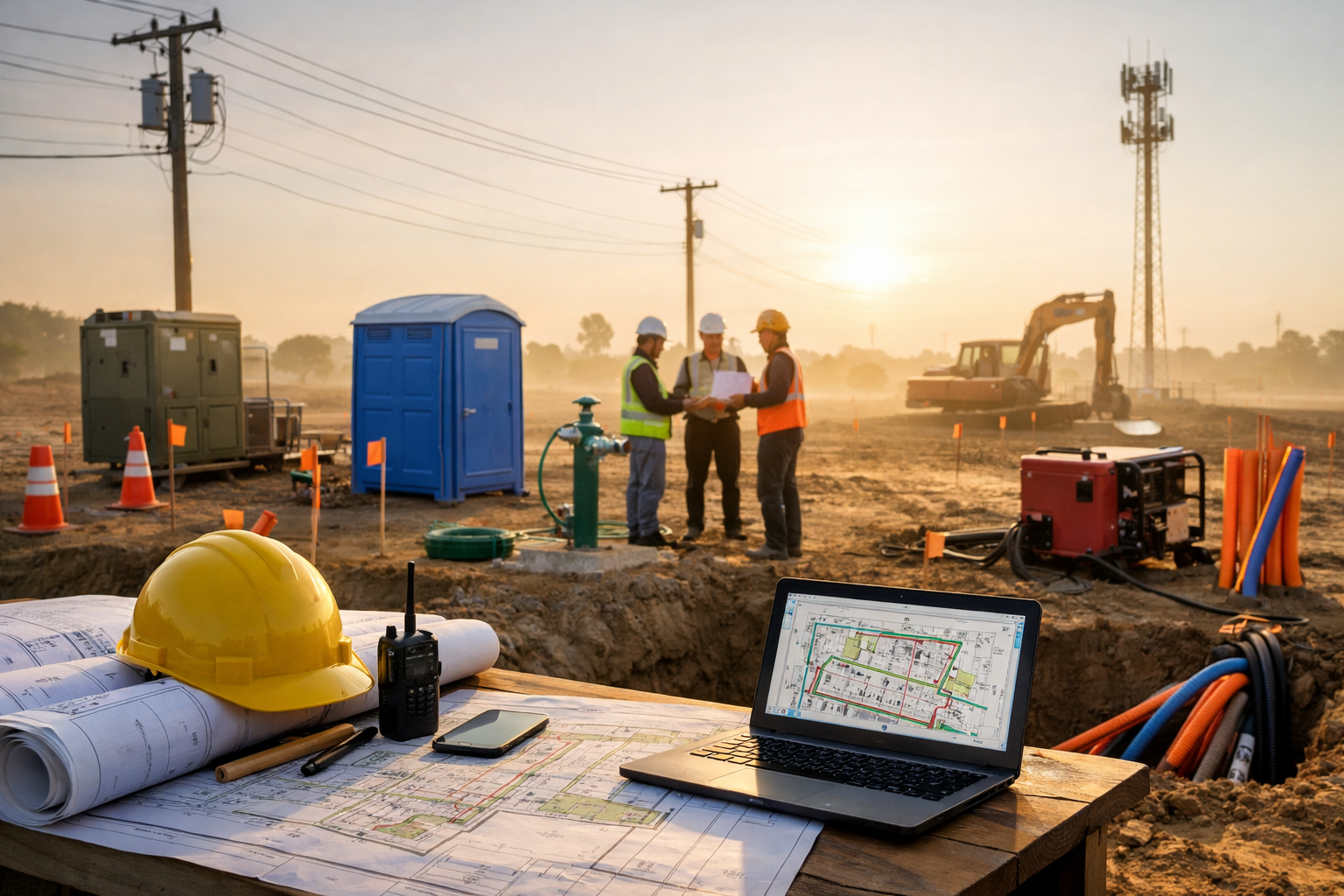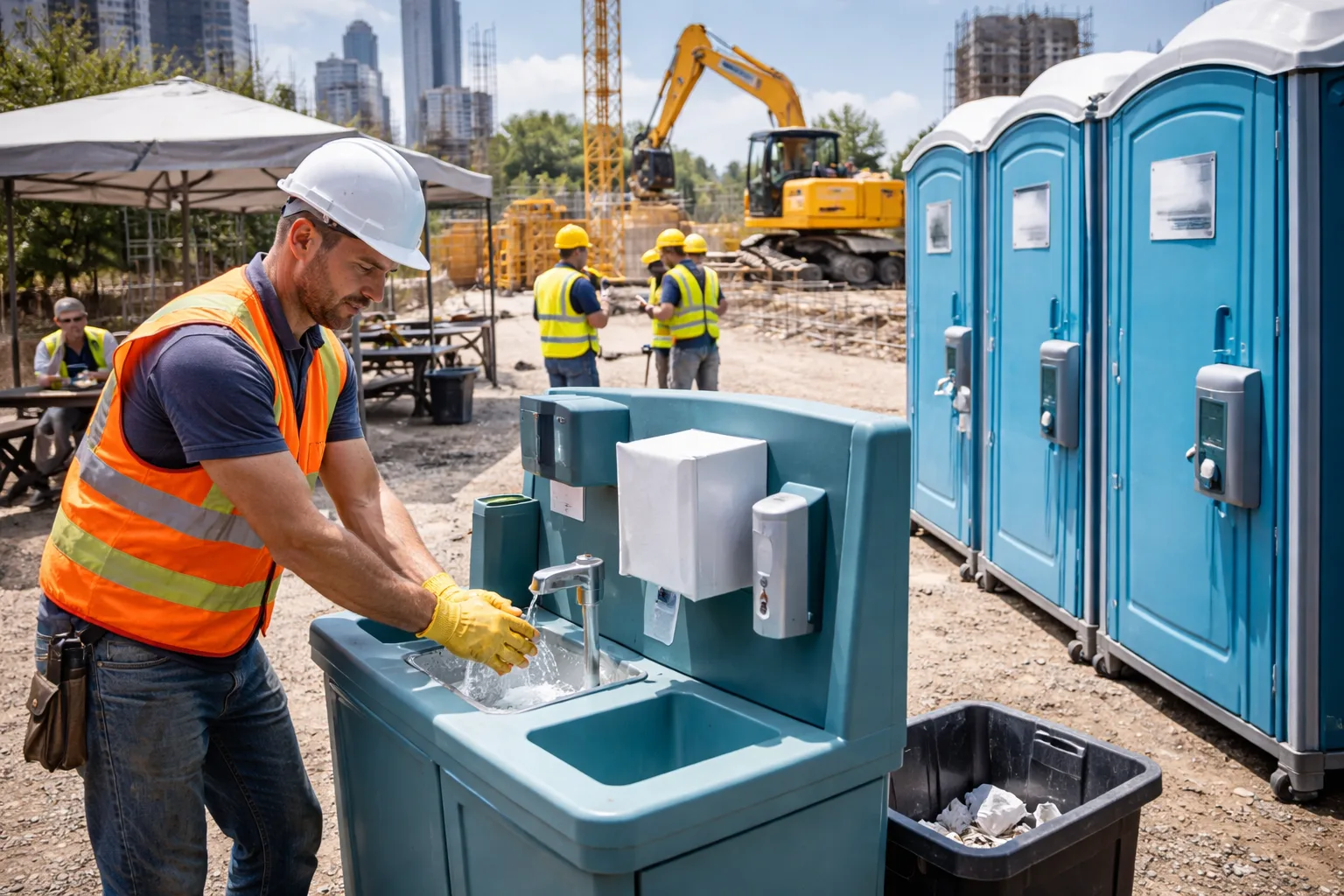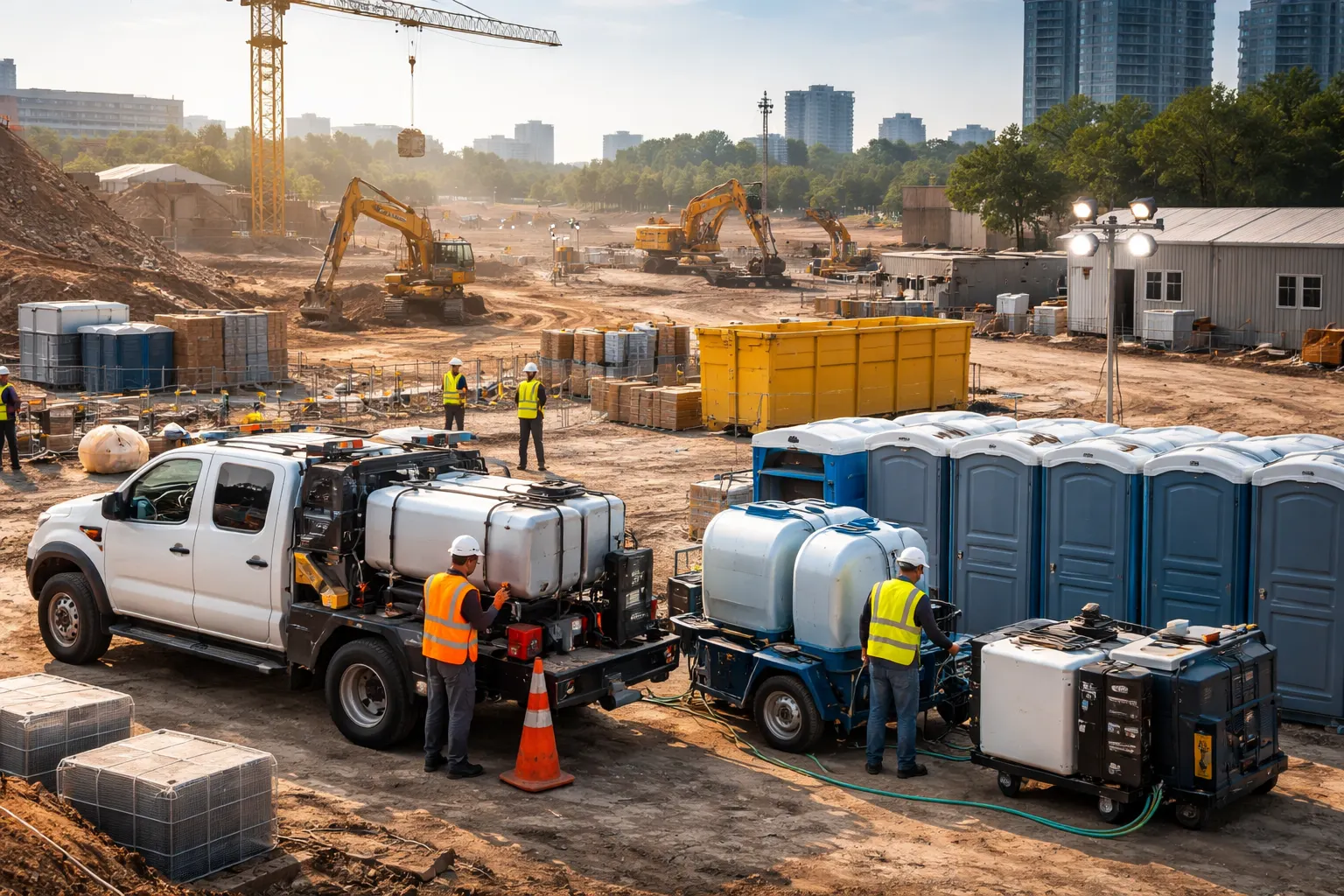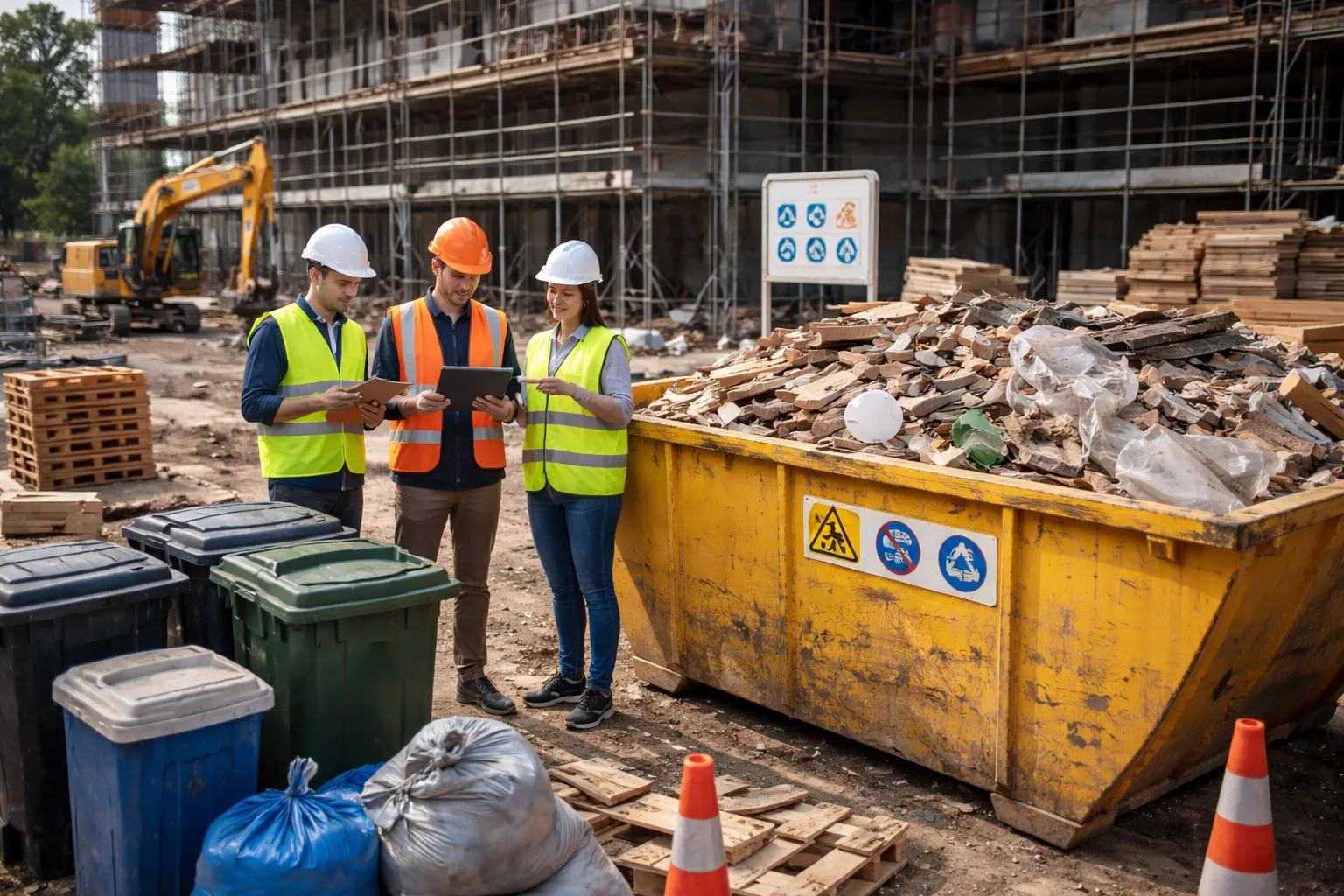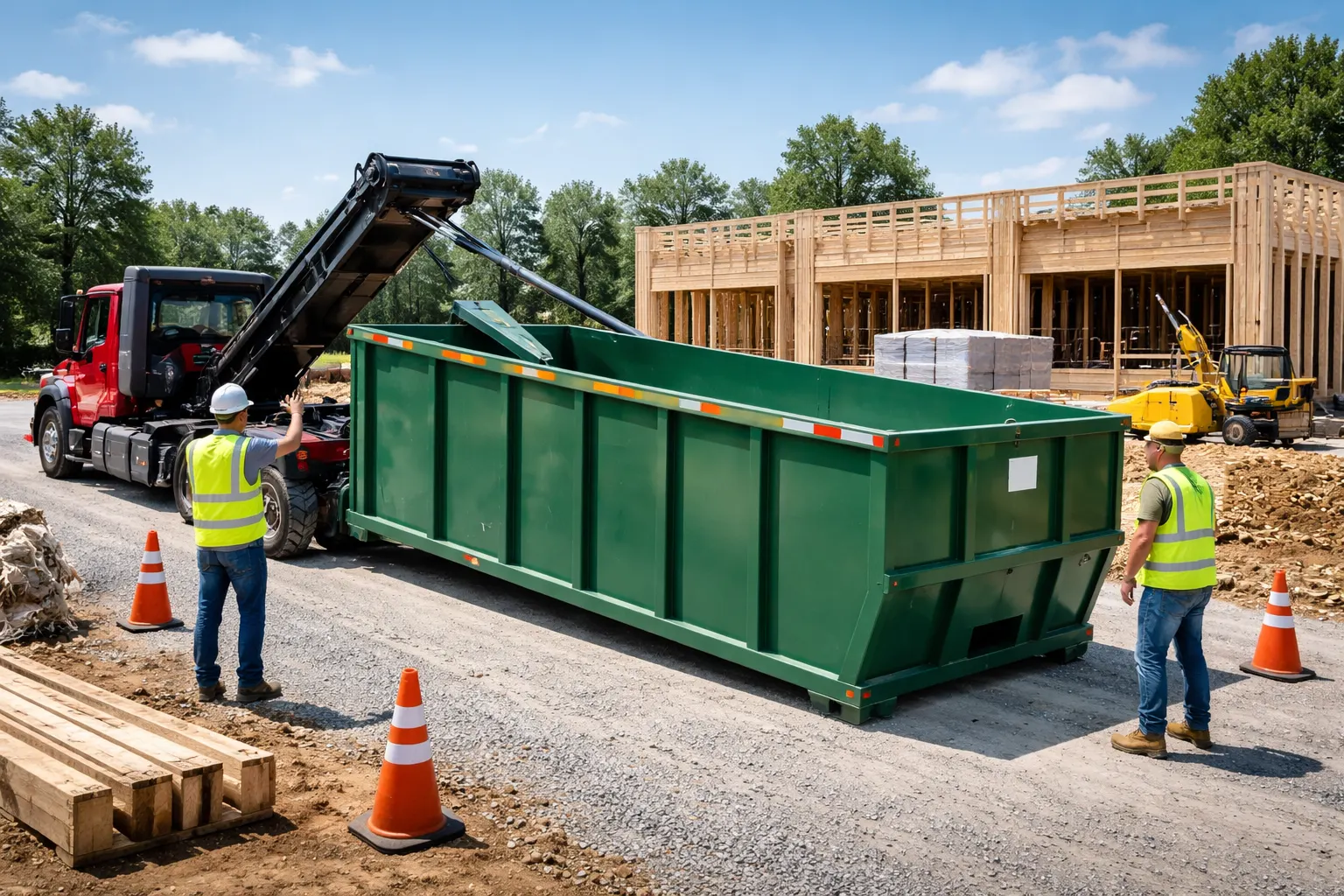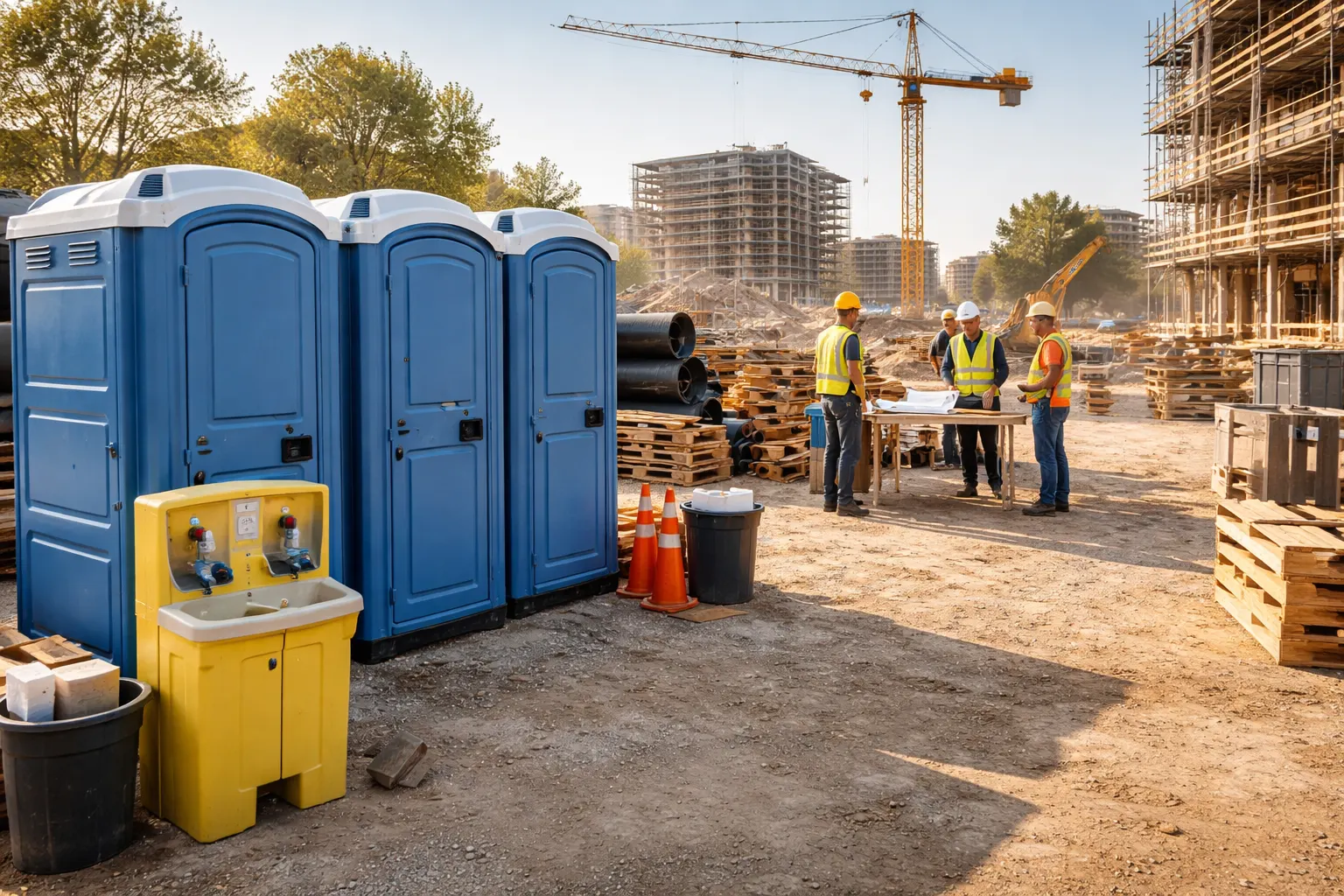In today’s world, the construction industry is under increasing pressure to adopt sustainable practices. One key area of focus is waste management. By implementing smart waste management strategies, the construction sector can significantly reduce its environmental impact. In this article, we will explore various waste reduction strategies, the future of waste services, and how sustainable waste management is shaping eco-friendly construction practices.
Construction projects generate a significant amount of waste. This waste includes materials such as concrete, wood, metals, and plastics that are often discarded rather than reused or recycled. The traditional approach to construction waste has been to send it to landfills, which contributes to environmental degradation and resource depletion.
The Impact of Construction Waste
Construction waste contributes to numerous environmental issues. Landfills release harmful greenhouse gases and leachate, which can contaminate soil and groundwater. Additionally, the production and transportation of new construction materials consume energy and resources, increasing the carbon footprint of construction projects.
Waste Reduction Strategies in Construction
To combat these issues, the construction industry is embracing waste reduction strategies. These strategies focus on minimizing waste generation, promoting recycling, and reusing materials whenever possible.
Designing with Waste in Mind
One effective waste reduction strategy is to design buildings with waste management in mind. Architects and engineers can create designs that minimize material use and simplify construction processes, reducing the amount of waste generated. Modular construction, for example, involves creating building components offsite, which reduces onsite waste and allows for precise material usage.
Implementing Recycling Programs
Recycling is a crucial component of sustainable waste management in construction. By separating waste materials on-site, construction companies can recycle items such as metals, wood, and plastics. This not only reduces the amount of waste sent to landfills but also conserves resources by providing recycled materials for new construction projects.
Embracing Deconstruction
Deconstruction is the process of dismantling buildings in a way that allows materials to be reused or recycled. Unlike traditional demolition, which involves tearing down structures, deconstruction carefully disassembles them. This method not only reduces waste but also preserves valuable materials that can be repurposed in future projects.
The Future of Waste Services in Construction
The future of waste services in construction is promising, with advancements in technology and innovative practices paving the way for more sustainable solutions.
Smart Waste Management Technologies
Technological advancements are revolutionizing waste management in construction. Smart waste management systems use sensors and data analytics to monitor waste generation and identify areas for improvement. These technologies enable construction companies to optimize waste management processes and reduce their environmental impact.
Circular Economy in Construction
The circular economy is an economic model that focuses on minimizing waste and making the most of resources. In the construction industry, this means designing buildings for longevity, using materials that can be easily recycled or repurposed, and implementing systems that support waste reduction throughout the lifecycle of a building.

Eco-Friendly Construction Practices
Eco-friendly construction practices are essential for achieving a zero-waste future. By integrating sustainable materials and energy-efficient technologies, construction projects can minimize their environmental impact.
Construction Waste Management Best Practices
Using Sustainable Materials
Choosing sustainable materials is a crucial aspect of eco-friendly construction. Materials such as bamboo, recycled steel, and reclaimed wood have a lower environmental impact compared to traditional materials. These materials not only reduce waste but also contribute to healthier indoor environments.
Energy-Efficient Building Techniques
Energy-efficient building techniques, such as passive solar design and high-performance insulation, reduce the energy consumption of buildings. By lowering energy demand, these practices contribute to a more sustainable construction industry and reduce the carbon footprint of buildings.
The Role of Policy and Regulation
Government policies and regulations play a significant role in promoting zero-waste construction practices. By setting standards for waste management and encouraging the use of sustainable materials, governments can drive the construction industry toward a greener future.
Incentives for Sustainable Construction
Governments can incentivize sustainable construction practices by offering tax breaks, grants, and other financial benefits to companies that adopt eco-friendly methods. These incentives encourage the industry to invest in sustainable technologies and practices, accelerating the transition to zero-waste construction.
Setting Waste Reduction Targets
By setting waste reduction targets and enforcing regulations, governments can ensure that construction companies prioritize sustainable waste management. These targets provide a clear framework for the industry to follow, promoting accountability and progress toward zero-waste goals.
Conclusion
Zero-waste construction is not only possible but necessary for a sustainable future. By implementing smart waste management strategies, embracing eco-friendly construction practices, and leveraging technological advancements, the construction industry can significantly reduce its environmental impact. As we move toward a greener future, it is essential for construction companies, policymakers, and communities to work together to build a sustainable world.
By adopting these practices, the construction industry can lead the way in sustainable development, setting an example for other sectors to follow. The journey to zero-waste construction is challenging, but with commitment and innovation, it is within reach.

